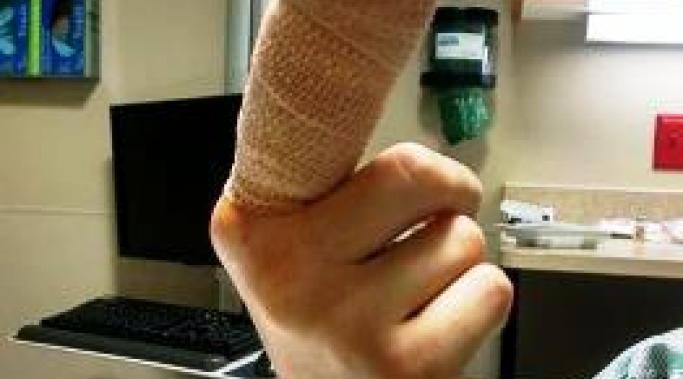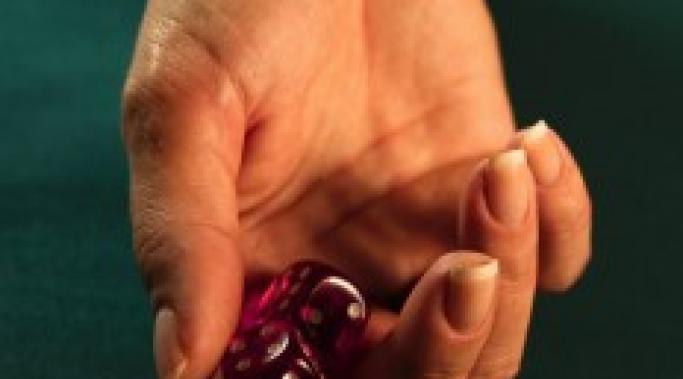Blogs
Have you heard of the term self-stigma? Once you are diagnosed with a mental illness, many people feel that they are somehow tainted, mostly because of mental health stigma. Not only do they feel this outwardly, but also in how they perceive their internal sense of who they are as a person. It is not uncommon to experience shame of having a mental illness, and instead of knowing that you are a person who has an illness, you often forget you are not someone who is the illness. This is at the center of self-stigma.
Sometimes life decides to throw curveballs that lead to anxiety. While others may see these curveballs as minor, little things can sometimes seem colossal when it comes to destroying a mood. Maybe you thought your class started at a certain time when, in fact, it started twenty minutes before. Instead of getting coffee without creamer, maybe your barista decided to sneak some in.
For self-harmers, the little things in life can be what turn a safe day into a not-so-safe one. Even the most minor incident can set someone into a depressive or paranoid state. It’s easy for some people to laugh off small situations such as spilling a drink or forgetting to buy something at the grocery store. However, when you struggle with mental illness, it doesn’t take much for the brain to get fired up over those small situations.
Over the weekend, my wife was bitten by a dog. It was a serious bite, costing her the tip of her right index finger. I was present when it happened, watching in horror as she stepped in between two angry lab-mixes that were fighting over a bone.
We went from watching college football to panic in less than 30 seconds. As my wife sat down, holding her bloody hand, there wasn't time to think about much. My only concern was how to help her. My mother-in-law had separated the dogs, placing one in a cage, and raced over with napkins and began to apply pressure to my wife’s wound. At that moment, we had no idea how serious the injury was.
Usually, when treating ADHD, outpatient treatment is the first option to be considered before more intense levels of treatment. Outpatient treatment for ADHD, as well as parenting classes, can enhance the effectiveness of managing the symptoms and behaviors.
Living with bipolar disorder has its ups and downs. Okay, I guess that goes without saying, but in this case, I’m not talking about hypo/manias and depressions, I’m just talking about good days and bad days. Everyone has them, although, for people with bipolar disorder they are more exaggerated.
Likely, if you’re in treatment, your down days are lessened, but I think for everyone they still occur. But what happens when you seem to just have downs?
I recently read an article about a new class of mental health professionals in Kentucky--licensed pastoral counselors. Due to my negative experience with Christian counseling, I am hesitant, but cautiously optimistic. I can understand both sides of the argument, but here's why I think it's a good idea.
Shortly after I moved into the downtown Indianapolis area, I started betting on horse races at a bar (off-track betting, OTB). I realized I now had not one, but two addictions when I joked about buying a horse and naming it "Beer Money." While I'm in recovery, I still speculate about how my symptoms of borderline personality disorder (BPD) fueled my gambling addiction. Thankfully, I caught it early.
School refusal is the most arduous test I've encountered while parenting my mentally ill son. Middle school is difficult for most adolescents. Seventh grade was the worst year for me and my son Bob. That is the year he refused to go to school.
Mindfulness is a matter of seizing the moment. Are you paying attention to this moment? Will you surrender completely in this moment? Can you be happy in the moment and have it be enough? If your answers are 'no', then read on to learn why to consider changing them to 'yes'.
Self-harmers know that typical, everyday objects can be seen in an unsafe light. Some people may see a can tab as, well a can tab, while self-harmers see it as an escape. While people see a pen cap as being used to top a pen, those who self-injure may see it as a harmful tool.
Being that everyone’s brains are unique and different, very few understand the mind of those who self-harm. This rings true for mental illness in general – they are frightening diseases to understand. For those who don’t quite take the time to see through the blurred eyes of a self-harmer, they may not fully grasp why they see and do what they do.









I believe she will only be able to rid herself of her demons, and hopefully her BPD as well, when she's ready to confront the abuse of her father. If she can put the blame where it belongs, she may stop projecting that victim/perpetrator cycle on the present men in her life. These demons are a metaphor for the purgatory she has created for herself. That reality has consequences in the real world, but it need not be real in the tangible sense. Exorcising her demons will require the expenditure of real physical energy and probably the destruction of aspects of her personality. If this ever happens, and it's possible but not probable, then these demons will evaporate. They are only as real as one's personality is real. In short, reality is not the question, it's what you make of the things you feel to be real.